Garden Fence Ideas to Keep Animals Out: Practical Tips for a Peaceful Yard
A garden is a labor of love, and it can be heartbreaking to see your hard work destroyed by animals. Whether you’re dealing with deer, rabbits, or even your own pets, protecting your garden is essential. How can you keep these unwelcome visitors out while ensuring your plants thrive?
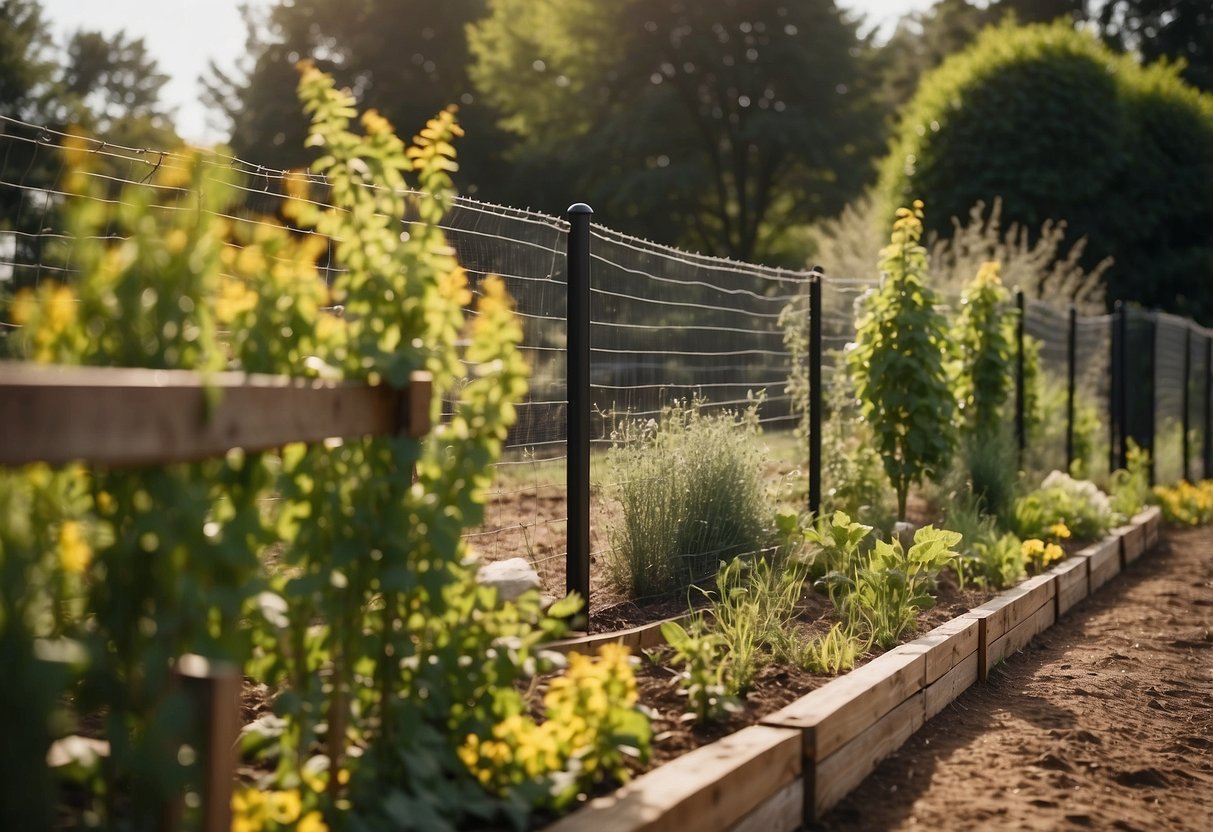
There are various garden fence ideas that can help you safeguard your plants. From simple barriers to more creative solutions, each method offers unique benefits and challenges. By exploring different options, you can find the perfect way to keep your garden safe and beautiful.
1) Tall Wooden Fence
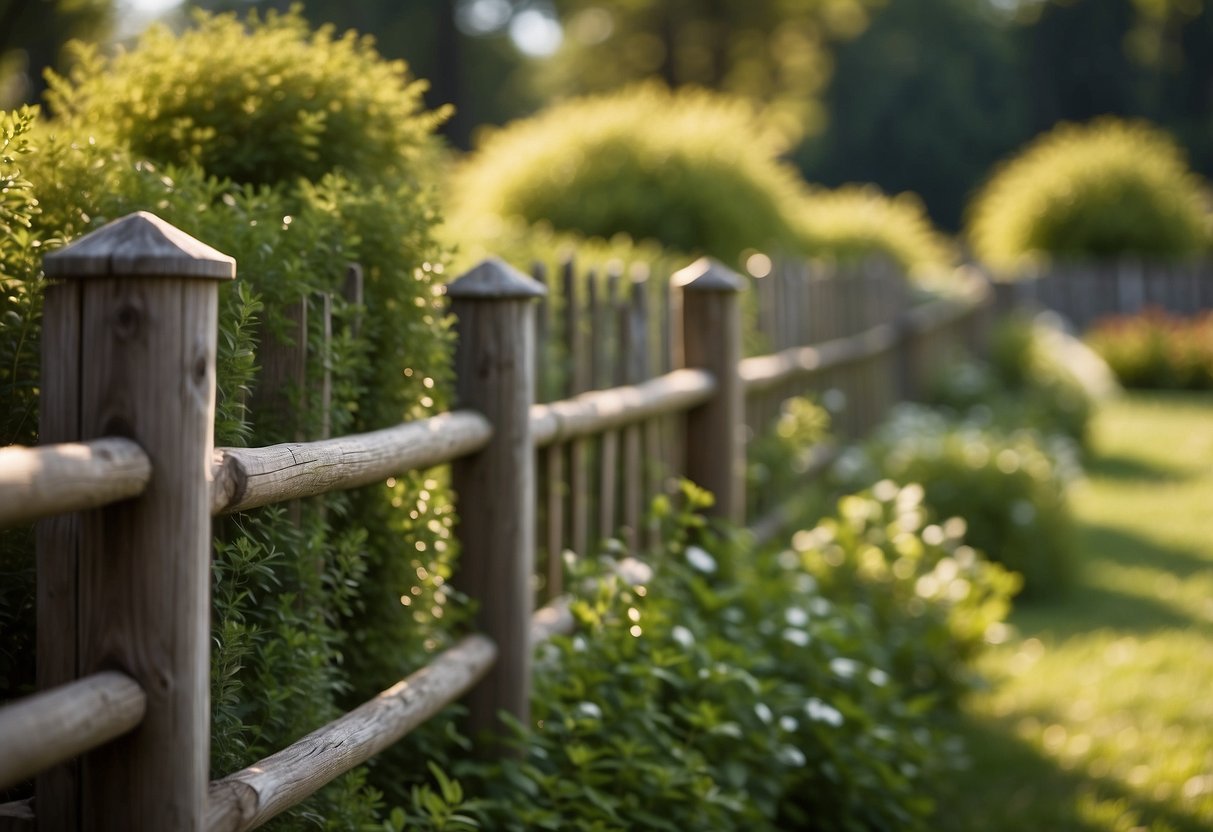
A tall wooden fence is a strong choice for keeping animals out of your garden. The height is crucial because many animals, like deer, can jump over shorter fences.
Make sure your fence stands at least 8 feet tall. This helps to deter even the most determined jumpers.
Choose sturdy materials and check local rules to ensure your fence is legal in your area. This ensures both functionality and compliance. For tips, the Gardeners site offers good insights into constructing effective fences.
2) Chicken Wire Barrier
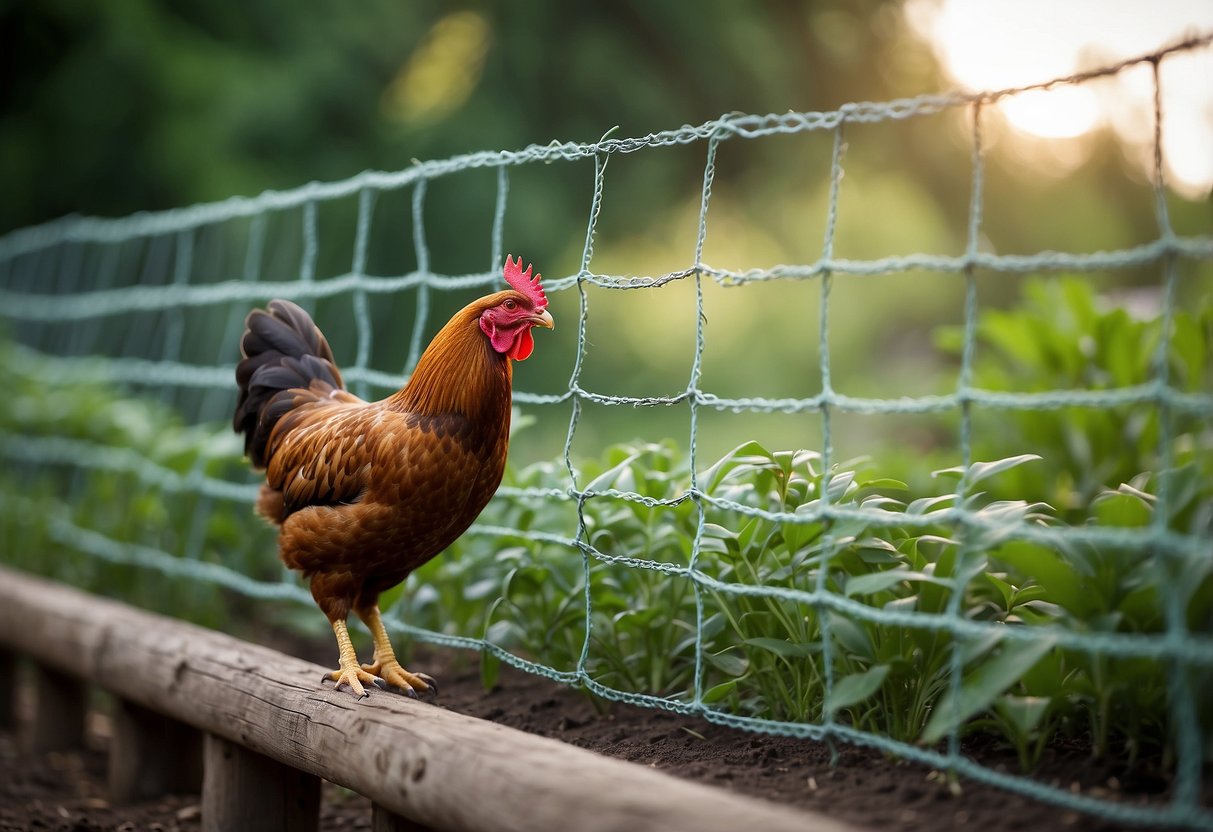
A chicken wire barrier is a simple and effective way to protect your garden from animals.
Start by measuring the area you want to fence. Purchase enough chicken wire to cover this space.
When setting up the fence, make sure it’s at least 3 feet tall. This helps keep most critters out.
For extra security, bend the base of the fence outward. This prevents animals from digging underneath.
3) Vinyl Privacy Fence

A vinyl privacy fence can be a great choice for keeping animals out of your garden. It’s durable and low-maintenance.
Vinyl fences are also strong and can stand up to various weather conditions. They do not rot, rust, or get infested by insects.
Besides being functional, vinyl fences provide a neat and tidy look to your garden. For more ideas, visit these vinyl fence options.
4) Deer-Proof Mesh Fence

A deer-proof mesh fence is a great way to keep deer out of your garden. You should use a strong wire mesh that won’t easily break.
Make sure the fence is at least 8 feet tall. Deer can jump high, so height is important.
It’s also helpful to bury the bottom of the fence 12 inches underground to prevent digging.
5) Electric Fencing

Electric fencing is an effective way to keep animals out of your garden. When an animal touches the fence, it gets a small shock.
This creates a psychological barrier, teaching them to avoid your garden.
For a DIY option, you can find electric fence kits at most hardware stores. Be sure to choose the right fence charger to ensure safety for pets and people.
You can also use a combination of electric fencing with other types like chicken wire. By doing this, you make your garden even more secure.
6) Garden Netting

Garden netting is a great way to keep birds and small animals out of your garden. You can easily drape the netting over your plants or build a simple frame to support it.
Netting comes in different sizes, so choose a type that best fits your garden needs. It’s lightweight and easy to install, making it a popular choice for many gardeners.
7) Picket Fence
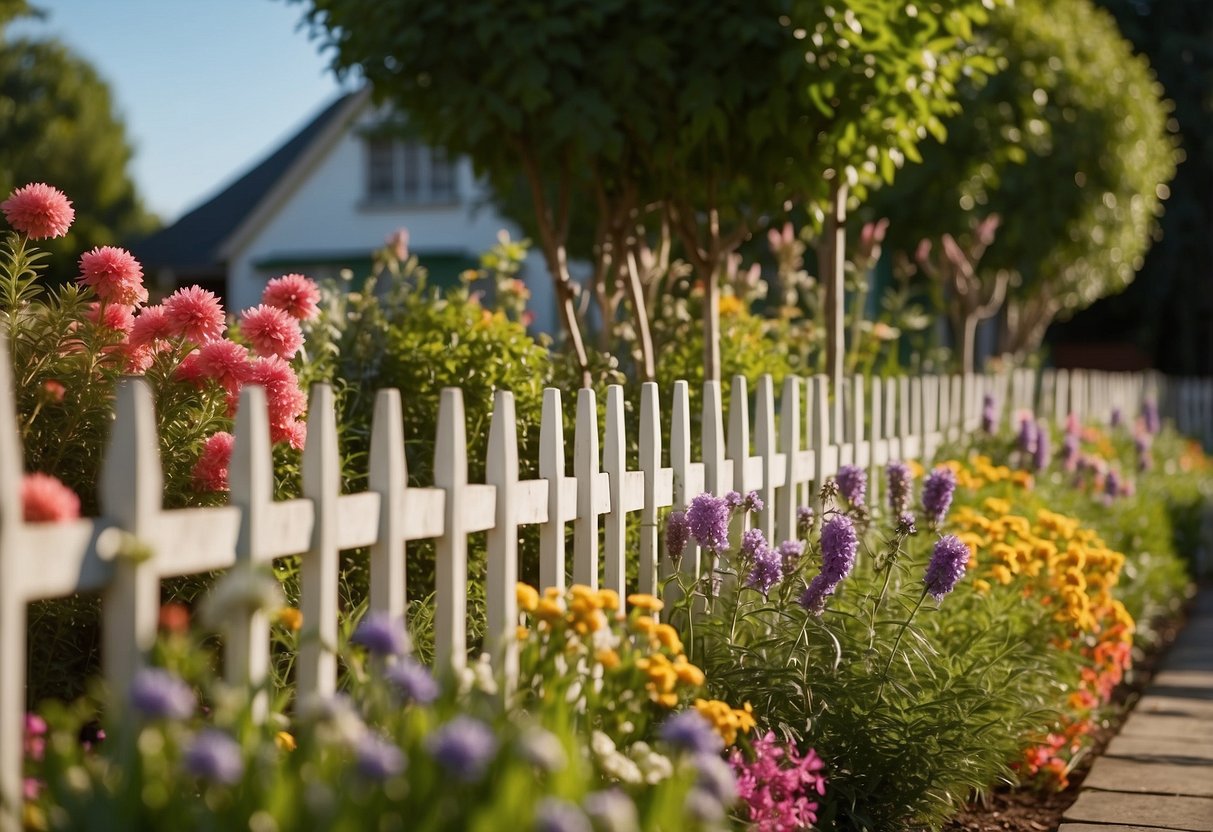
A picket fence offers a charming, classic look for your garden. It’s not just about looks; a well-built picket fence can help keep small animals like rabbits and stray dogs out.
You should make sure the gaps between the pickets are small enough to prevent critters from squeezing through. Additionally, consider burying the bottom of the fence a few inches underground to stop animals from digging underneath. For more ideas, check out best garden fencing.
8) Bamboo Privacy Screen

A bamboo privacy screen is a great addition to your garden to keep animals out while adding a natural look.
Bamboo panels are easy to install and can be customized to fit your space.
They’re an eco-friendly option and can blend seamlessly into your garden’s design.
Check out more ways to use bamboo for your garden by visiting 25 Bamboo Fence Ideas for Privacy and Aesthetic.
9) Hog Wire Fence

A hog wire fence is a great option if you want to keep animals out of your garden. It combines wire mesh with sturdy posts for a strong barrier.
You can also use redwood for the frame, which looks nice and adds to the fence’s strength. A redwood and hog wire fence is both functional and stylish.
The hog wire mesh is tough and can withstand animals trying to get through it. This type of fence is easy to install and maintain, making it a popular choice for gardeners.
10) Gabion Wall
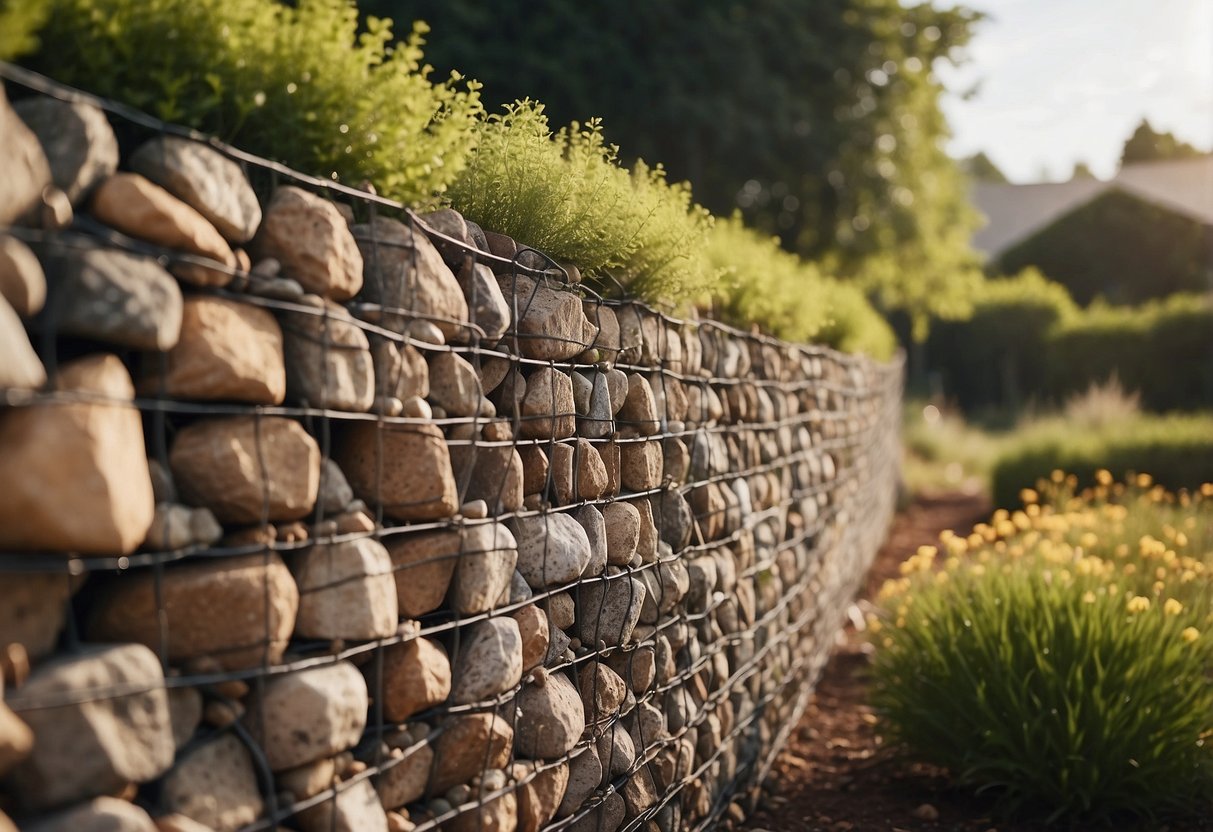
Gabion walls are a stylish and effective way to keep animals out of your garden. These walls are made from wire cages filled with rocks or other sturdy materials. They blend well with natural surroundings.
You can customize gabion walls to fit any garden size and shape. They offer excellent protection against burrowing animals and look great too.
For a modern touch, consider combining gabion walls with metal picket panels. This mix not only enhances your garden’s appearance but also boosts its durability and security.
Understanding Animal Behavior
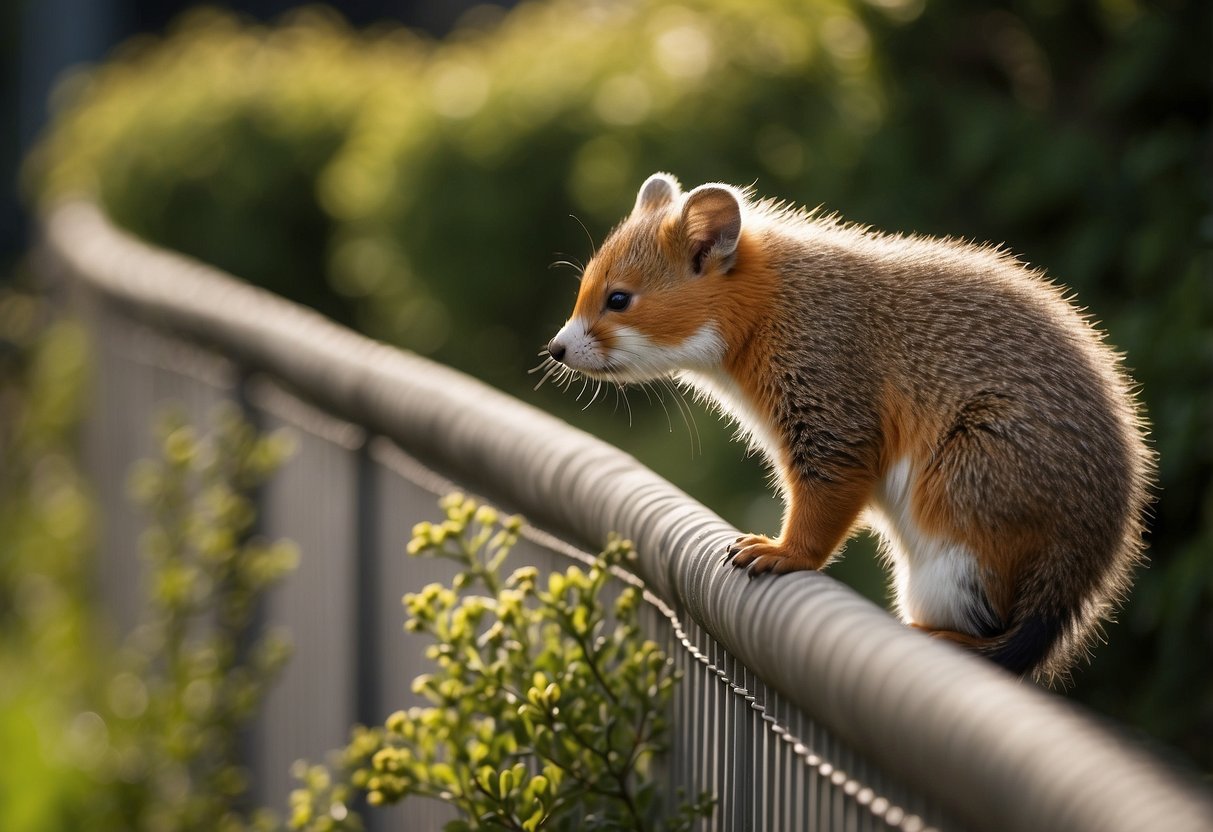
Knowing how animals behave is crucial for keeping them out of your garden. Each animal has unique habits and preferences, which you need to understand to create effective garden defenses.
Identifying Common Garden Pests
Different animals can cause various problems in your garden. Deer, for example, often eat leaves and fruits. They can jump high, so fences need to be 8 to 10 feet tall to deter them. Rabbits and groundhogs are known for munching on vegetables. They can squeeze through small gaps, so make sure your fence has tight wire mesh.
Other animals to look out for include moles and voles, which burrow underground. Burying your fence 6 to 12 inches deep can help stop them. Birds may peck at seeds and fruits, so using netting can protect your crops.
Why Animals Target Gardens
Animals are drawn to gardens mostly for food. Gardens provide a buffet of fruits, vegetables, and flowers. Nutrient-rich plants make your garden an attractive target for many creatures. Sometimes, animals are simply seeking a safe, sheltered spot. Gardens can offer both plenty of hiding spots and access to fresh water.
Understanding these triggers means you can take specific steps to deter animals. For example, installing motion-activated lights can scare away night-time visitors. Using repellents like castor oil can deter burrowing pests. Knowing why animals come to your garden helps you plan better and more effective defenses.
Choosing the Right Fence
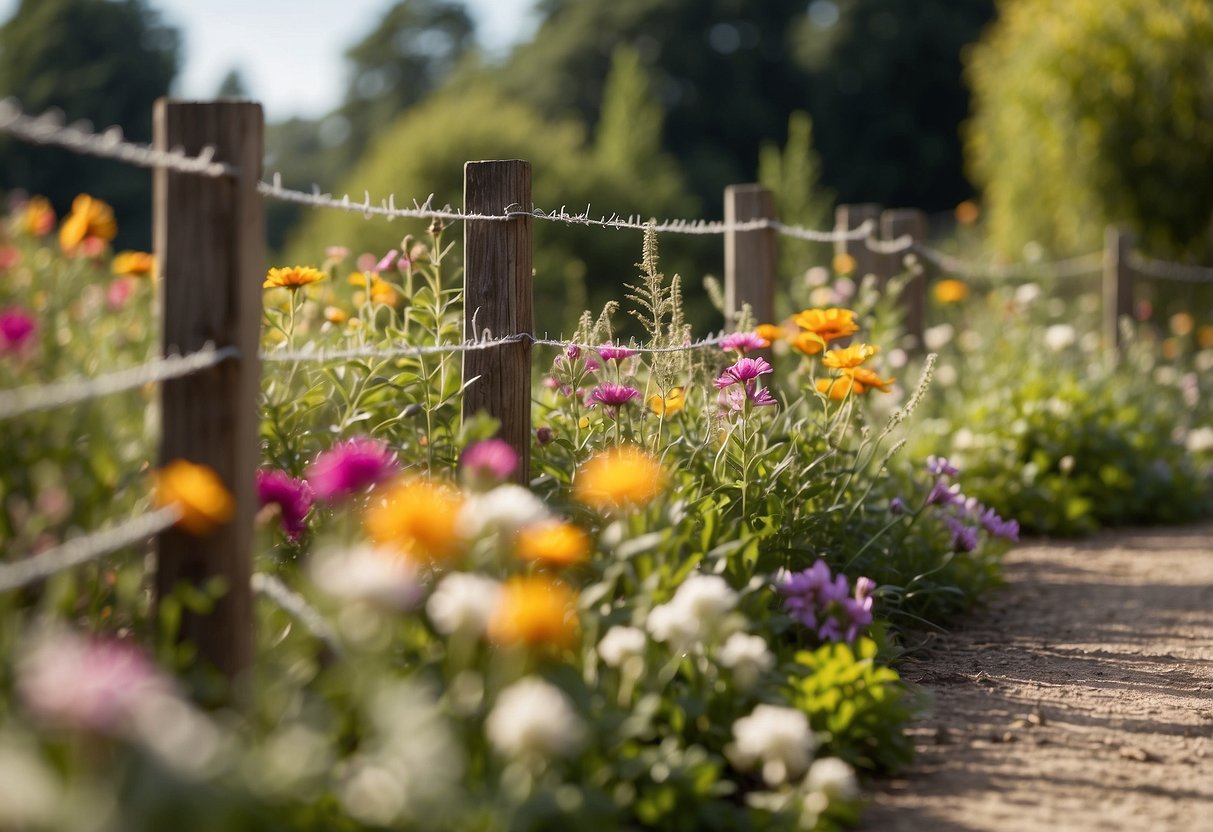
Picking the right garden fence is essential to keep animals out of your garden. Factors to consider include the materials used and the height and depth of the fence.
Material Options
Different materials work well depending on the animals you want to keep out. Wire mesh is a popular choice as it’s strong and durable. For a more attractive fence, consider wooden picket fences, although these might require more maintenance.
Metal fences like aluminum or steel are also good options. They are sturdy and less prone to weather damage. Vinyl fences offer a blend of durability and aesthetic appeal but can be more expensive. Each material has its pros and cons, so think about your specific needs and budget.
Height and Depth Considerations
Height and depth are crucial to keep different animals away. Deer can leap over low fences, so your fence should be at least 8 feet tall. For smaller animals like rabbits or moles, burying the fence at least 6 inches deep prevents them from burrowing underneath.
A combination of height and depth works best. For example, burying a wire mesh under the ground and having a tall wooden fence above. Always tailor the height and depth to the specific animals in your area to maximize effectiveness.
Maintenance and Upkeep

Keeping your garden fence in good condition ensures it continues to keep animals out. Regular inspections and timely repairs are key to maintaining its effectiveness.
Regular Inspection Tips
Inspect your garden fence at least once a month. Look for signs of wear, rust, or damage caused by weather or animals. Pay close attention to areas near the ground and posts since they are most vulnerable.
Use a checklist to make inspections easier:
- Check for loose or missing nails.
- Look for holes or gaps in the fence.
- Ensure the fence is still securely buried if it was installed underground.
If you spot any issues, address them as soon as possible to prevent small problems from becoming bigger ones.
Repairing Damaged Sections
When you find damage on your fence, it’s important to fix it quickly. For minor repairs such as loose nails or small holes, use a hammer and nails or wire mesh patches to secure the fence.
For more significant damage, you might need to replace entire sections. Here’s a simple process:
- Remove the damaged section: Use a saw or wire cutters for precision.
- Measure the gap: Ensure you have accurate dimensions for a proper fit.
- Replace with new material: Use wood or mesh that matches the existing fence.
Remember to bury any new sections properly if your fence is designed to prevent burrowing animals. Secure posts firmly to keep the fence stable.
Regular maintenance helps your fence last longer and continue to protect your garden from unwanted animal visitors.







